The 5 best business apps to use in 2019
We take a look at the best business apps around
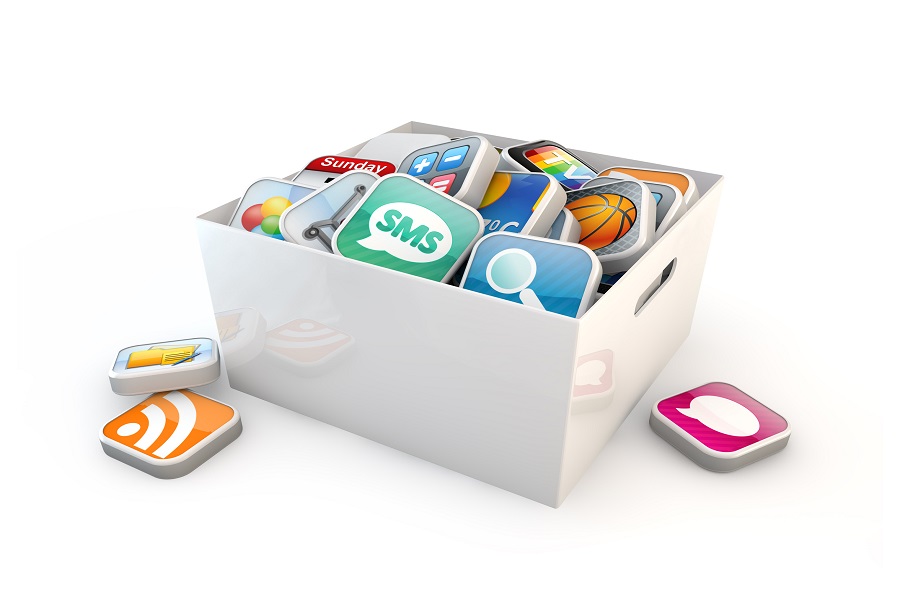

For business and IT professionals, the game has changed. Technology has enabled us to 'do more', which has obviously resulted in 'more to do' and workloads now need technology to make the job more efficient and manageable.
IT professionals now face a daily list of growing tasks, where their colleagues work more flexible hours, which makes them harder to organise The working day has become far more challenging, with multiple devices and projects all in need of constant upkeep, and a new tool is needed. Enter the business app.
With agile working being adopted throughout the enterprise, a business app is a perfect tool to help manage all of those key projects simultaneously and keep you on top of the game. They allow your whole team to collaborate, share ideas, manage their workloads, stay in the loop of who is doing what project and what the status of each of them is.
There are many business apps and tools to choose from that can streamline your operations and make your working day less stressful and some are even free. Here we have picked the best five to help you and your business run smoothly.
Expensify
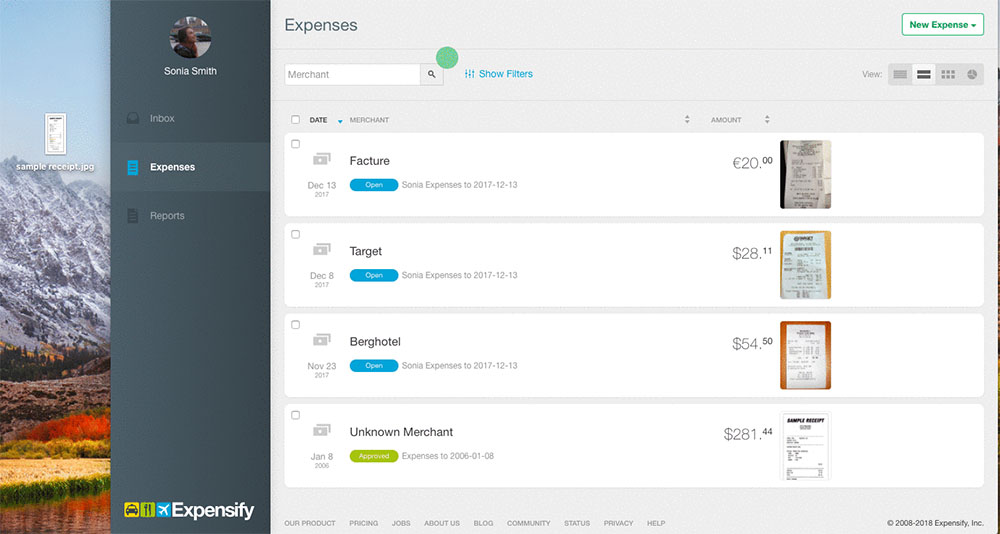
Logging expenses may not be the most interesting use of apps, but it's definitely one of the most useful, helping with your tax return if you're a small business or keeping tabs on spending if you're a line manager in a larger business. The free application makes it simple to upload receipts using your Android or iOS device, using OCR SmartScan, or upload a picture on the website, email them to a dedicated email account or use a Google Chrome extension to add them to your expenses account.
Although you will probably have to store those original receipts somewhere, at least your accounting is kept up to date virtually, making end of year reports a whole lot simpler.
What's even better about Expensify (aside from its excellent functionality) is that it's free if you're happy with limited functionality (10 free SmartScans a month), otherwise it costs from $5 per active user per month, which is a whole lot cheaper in comparison to other expense-tracking apps.
Expense tracking can be fully automated, removing the heavy-lifting for finance teams. You can automatically reimburse employees on the lowest tier and integrate it with Xero and Quickbooks seamlessly if you want to bring everything together in once place.
Website: Expensify
Price: Basic version is free, otherwise from 5/user/month
Evernote
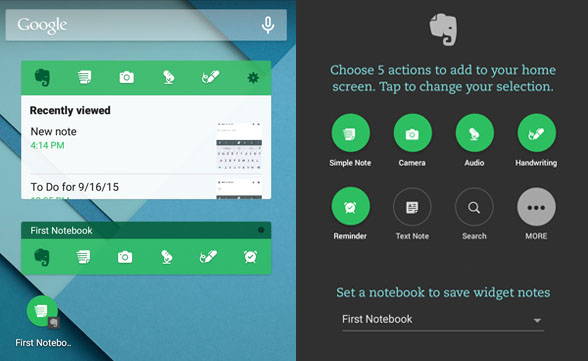
Website: www.evernote.com
Evernote bills itself as the app to help you collect, nurture and share ideas either with yourself or with others.
You can create to-do lists, sketches and more and quickly and easily find when you need thanks to sophisticated search and support for multiple platforms and devices.
Some 20,000 companies around the world are already using Evernote to boost productivity.
Price: Basic version is free. Plus version 29.99 per year (1GB uploads per month). Premium version builds on that with 10GB of uploads per month, live chat custom support, PDF text search and annotation functionality, history browsing capabilities and related content. It costs 44.99 per year.
G Suite
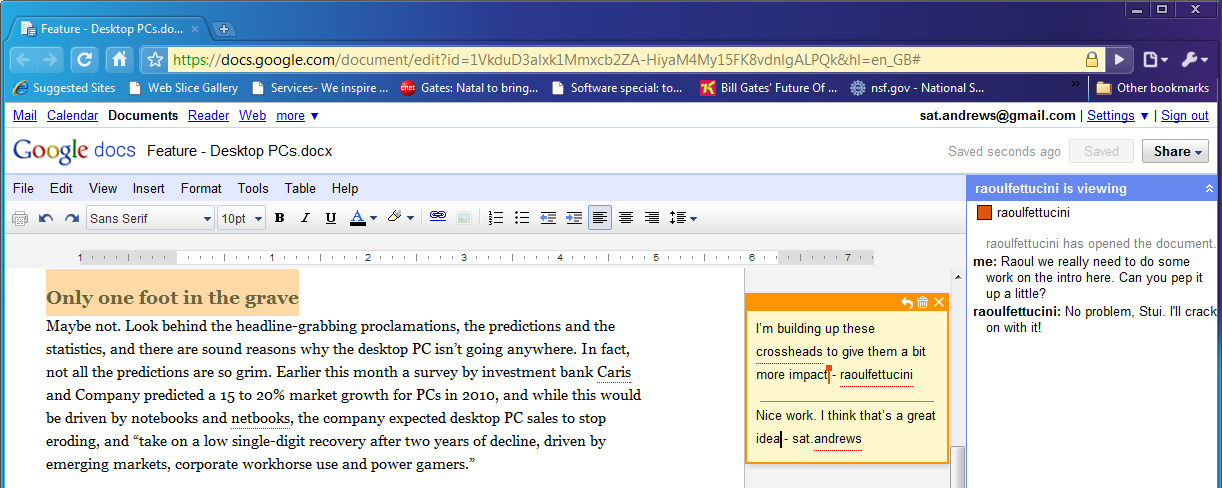
Website: gsuite.google.co.uk
This is the filing cabinet that follows you around wherever you are. It's secure, cloud-based storage that you can put pretty much anything you like in. Most business users will need to access text documents, spreadsheets and so on during the working day. G Suite (comprising Gmail, Google Docs, Google Sheets, Google Slides and more) means those apps are never more than a click away.
What's more, you can also collaborate with colleagues either in real-time or when it suits using inbuilt revision and comment tools.
Price: There are specific pricing plans for bigger businesses, who want unlimited storage but the standard "off the shelf" pricing is 3.30 per user per month for the Basic tier, which offers 30GB storage per user and fairly rudimentary features. The next tiers, Business and Enterprise, both offer 1TB storage per user for teams of five people or fewer, or unlimited storage for those with six or more users. Business is 6.60 per user per month, while Enterprise is 20 per user per month, with the extra 13.40 giving you enhanced security features and access to Gmail log analysis in BigQuery.
Office 365
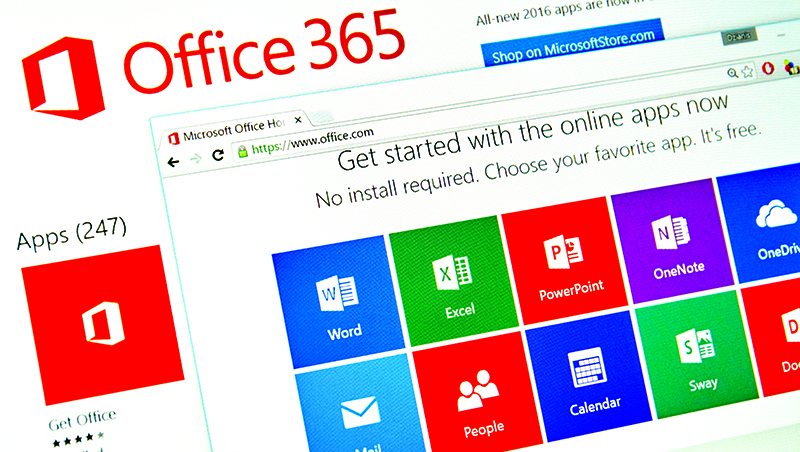
Website: Microsoft
If you're more comfortable with the Office suite than Google, Office 365 could be the answer for you, particularly if you're a long-term user of Office on the desktop. In all subscriptions, Office 365 has all the Microsoft Office products you're used to, Word, Excel, Powerpoint, Outlook, with cloud storage in the form of OneDrive, as well as the database platform, Access, and Publisher, the company's DTP software, although there are some limitations on these last two.
There are also additional services, not typically associated with Microsoft, like Skype for Business, Microsoft Teams, Yammer, Sway, SharePoint and online video meetings.
The main services all have free smartphone/tablet apps for your users to download so they can keep on top of their work wherever they are, as well as limited downloads to Macs and PCs.
Price: Pricing starts from 3.80 per user per month for Office 365 Business Essentials, rising to 30.80 per user per month for Office 365 Enterprise E5 (all listed prices are ex-VAT and dependent on an annual contract. Correct as of August 2017)
Slack
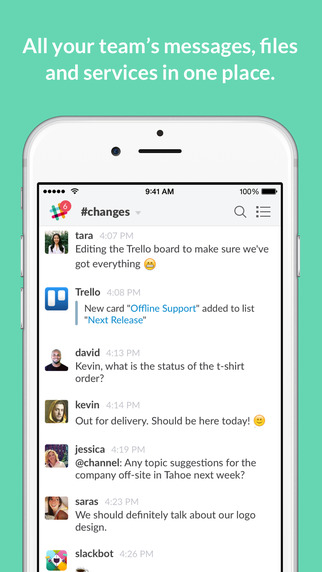
Website: www.slack.com
Put simply, it doesn't do what it says on the tin - this is most certainly an app for someone who is looking to avoid doing work. In fact far from it, as it's a tool designed to help not hinder productivity.
Slack's own website states: "Whatever work means for you, Slack brings all the pieces and people you need together so you can actually get things done."
In many ways, the way Slack operates is like a load of Twitter streams, but you can only see what's in them if you've been invited to a particular channel. You can add everyone in a channel with @here or @channel or you can tag individuals using their @handle either for everyone else in the channel to see or by private messaging them.
You can create threads a bit like within Gmail for ease of reference later and you can react to people's posts with emojis, including custom ones. Perhaps importantly you can set yourself to 'do not disturb' and mute channels if you really need to focus on something else for a while.
Most companies start using slack without knowing it. A small department or individual team will start using the free version to get things done. This will usually catch the attention of managers who will evaluate a wider rollout and quickly realise the business benefits, before signing up for a corporate, paid-for plan.
Price: Slack for Teams is free for 3-1,000 users, while Slack Enterprise has bespoke pricing and a number of enhanced features, including but not limited to 1TB of storage per user, 24/7 support and a plethora of supported app integrations.
Trello
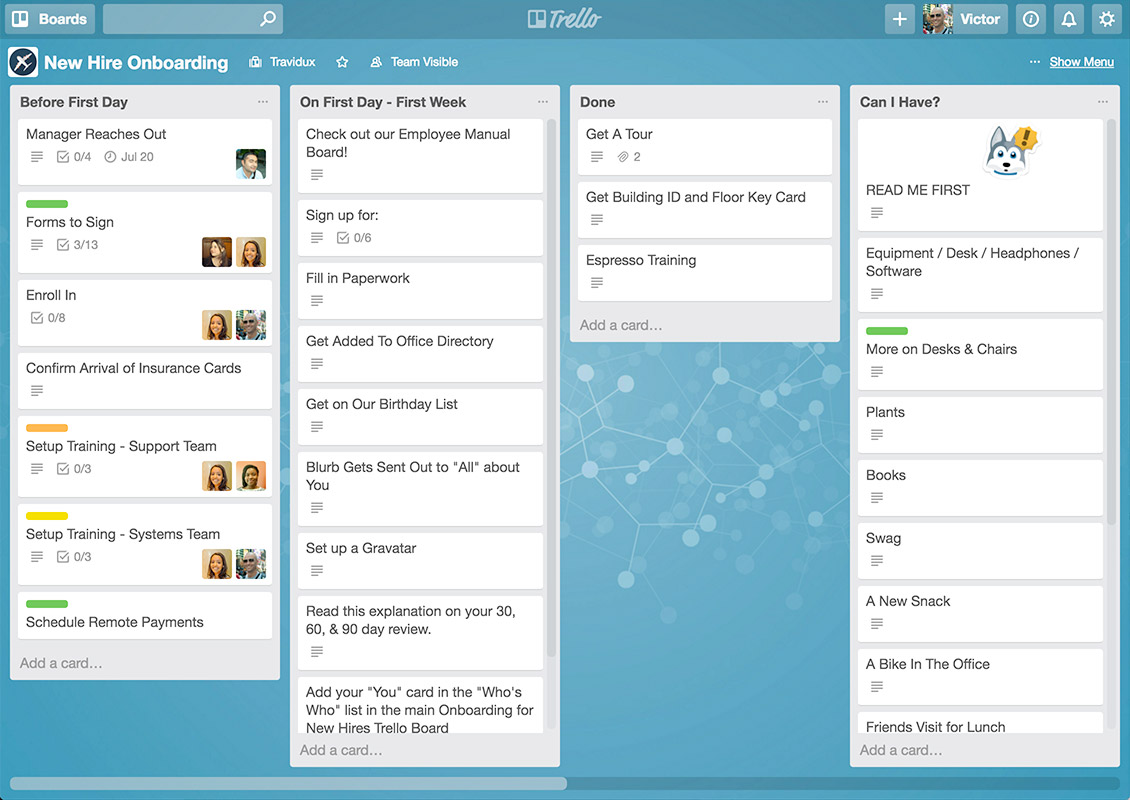
Website: www.trello.com
"Infinitely flexible. Incredibly easy to use. Great mobile apps. It's free. Trello keeps track of everything, from the big picture to the minute details."
This is how the website describes Trello. And it's not wrong, as this application can quickly become indispensable for those who have to manage teams and projects.
Its incredibly easy to understand and use interface is a large part of the charm - you create cards (which are displayed on boards with lists made from the cards) and then move them to different places when assigned or completed. You can also archive or delete and use labels, assign to people and more. Work really shouldn't be this much fun!
Price: Trello is free to sign up to, but if you want extra functionality you'll have to pay for it. Business class is $9.99 per user, per month, while the Enterprise pricing is dependent on your individual organisation's needs.
Get the ITPro daily newsletter
Sign up today and you will receive a free copy of our Future Focus 2025 report - the leading guidance on AI, cybersecurity and other IT challenges as per 700+ senior executives
Bobby Hellard is ITPro's Reviews Editor and has worked on CloudPro and ChannelPro since 2018. In his time at ITPro, Bobby has covered stories for all the major technology companies, such as Apple, Microsoft, Amazon and Facebook, and regularly attends industry-leading events such as AWS Re:Invent and Google Cloud Next.
Bobby mainly covers hardware reviews, but you will also recognize him as the face of many of our video reviews of laptops and smartphones.
-
 Bigger salaries, more burnout: Is the CISO role in crisis?
Bigger salaries, more burnout: Is the CISO role in crisis?In-depth CISOs are more stressed than ever before – but why is this and what can be done?
By Kate O'Flaherty Published
-
 Cheap cyber crime kits can be bought on the dark web for less than $25
Cheap cyber crime kits can be bought on the dark web for less than $25News Research from NordVPN shows phishing kits are now widely available on the dark web and via messaging apps like Telegram, and are often selling for less than $25.
By Emma Woollacott Published